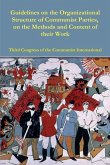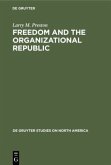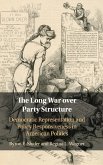Although most large police organizations perform the same tasks, there is tremendous variation in how individual organizations are structured. To account for this variation, author Edward R. Maguire develops a new theory that attributes the formal structures of large municipal police agencies to the contexts in which they are embedded. This theory finds that the relevant features of an organization's context are its size, age, technology, and environment. Using a database representing nearly 400 of the nation's largest municipal police agencies, Maguire develops empirical measures of police organizations and their contexts and then uses these measures in a series of structural equation models designed to test the theory. Ultimately, police organizations are shown to be like other types of organizations in many ways but are also shown to be unique in a number of respects.
Hinweis: Dieser Artikel kann nur an eine deutsche Lieferadresse ausgeliefert werden.
Hinweis: Dieser Artikel kann nur an eine deutsche Lieferadresse ausgeliefert werden.








